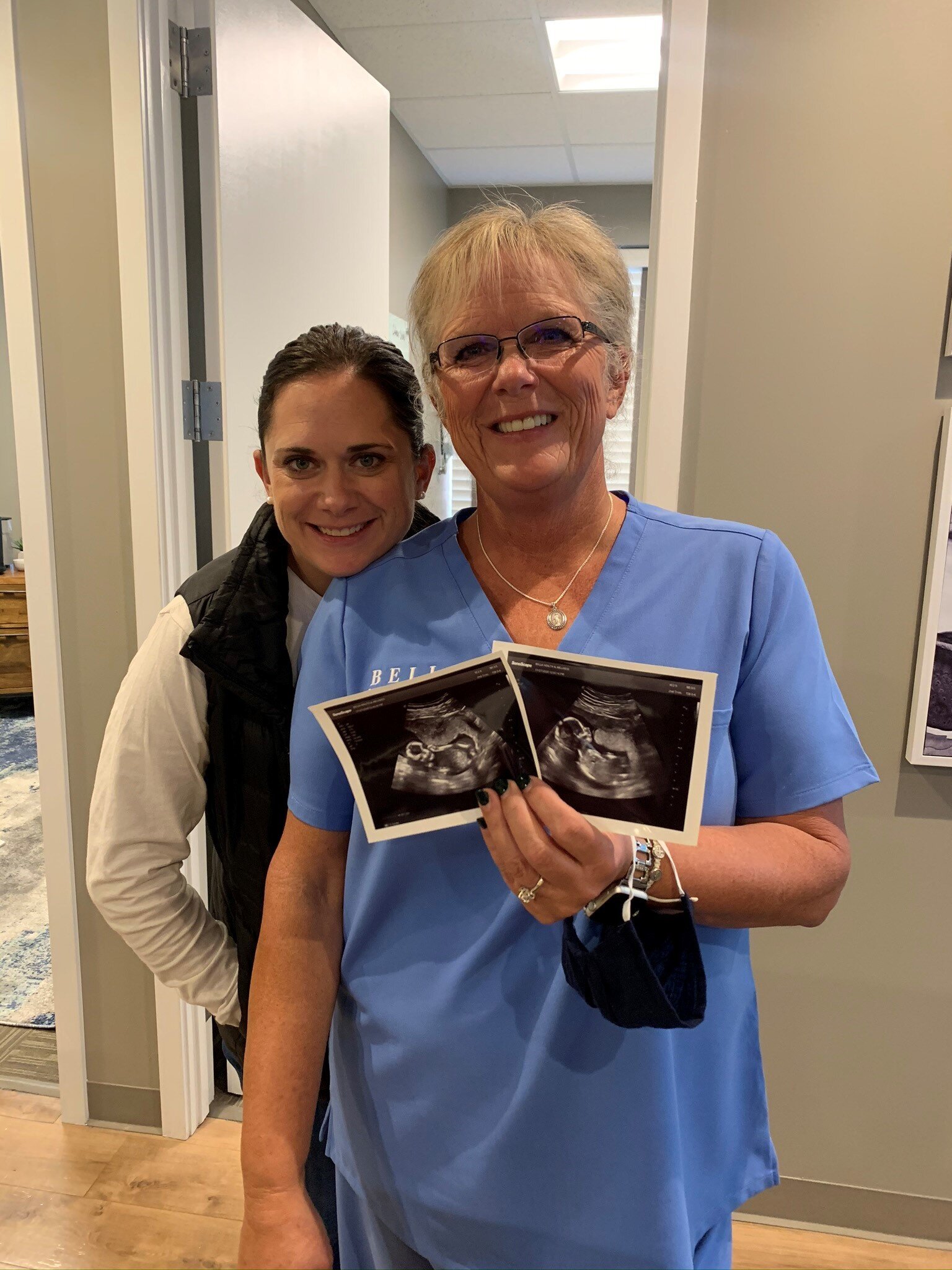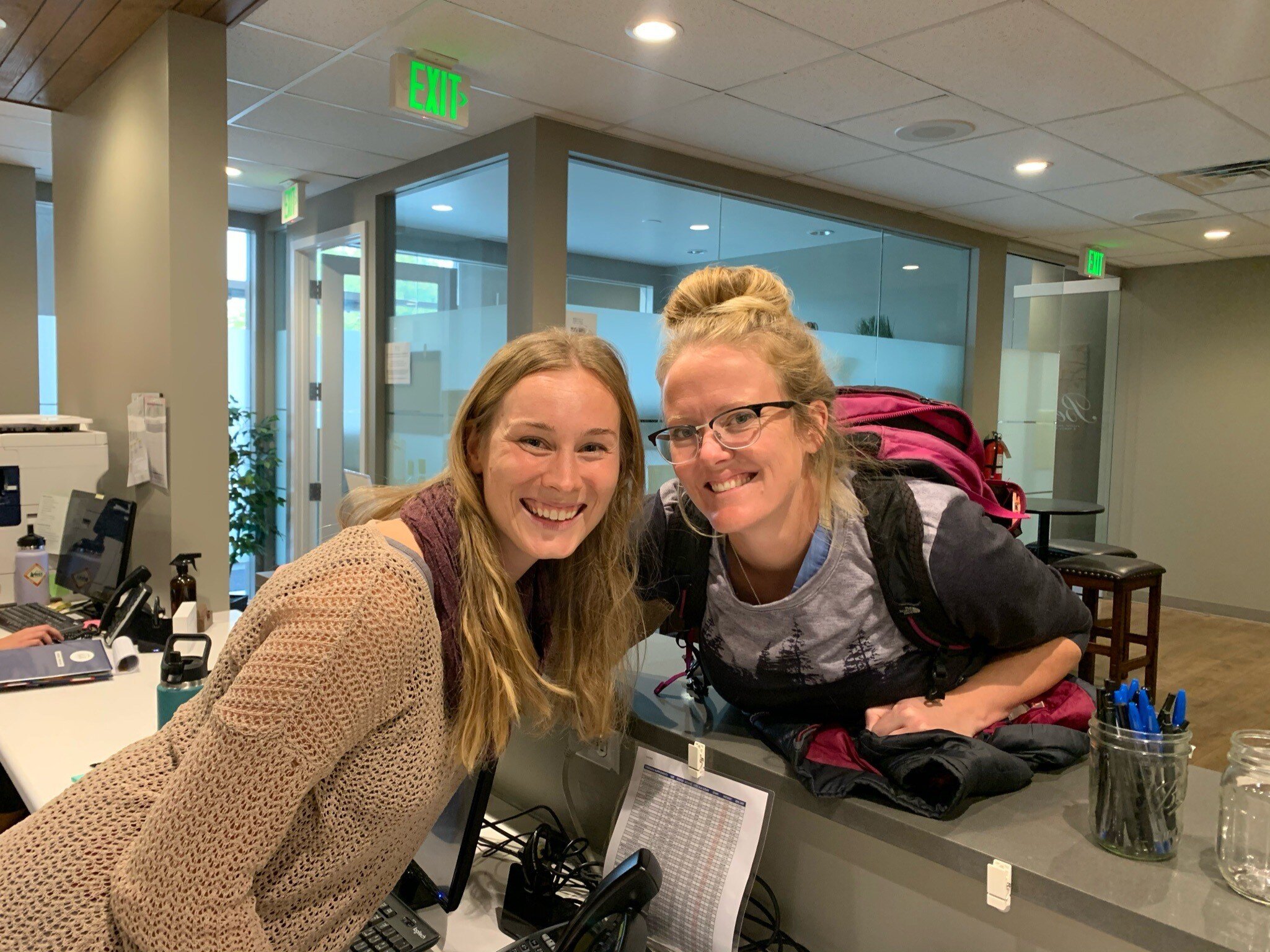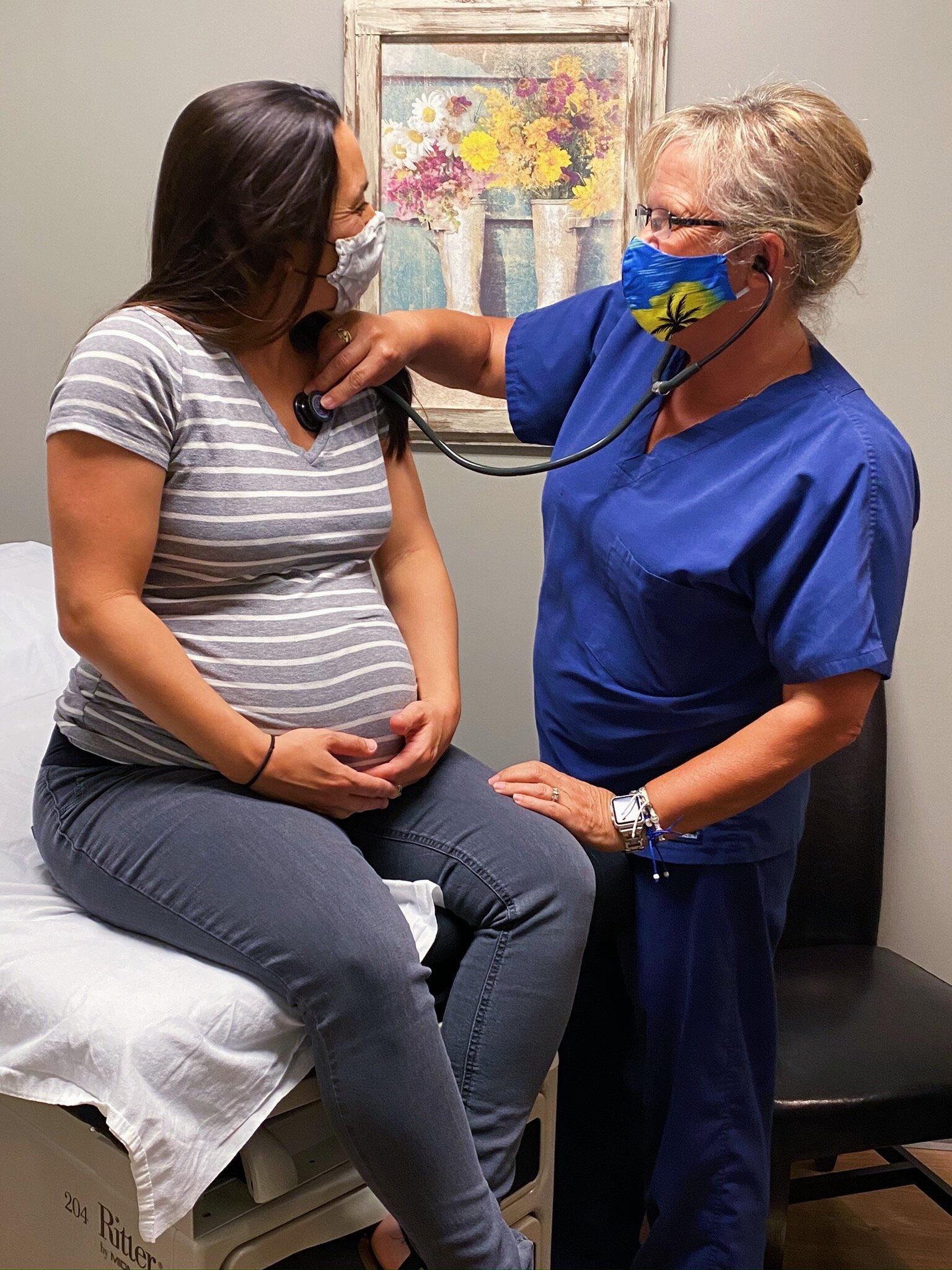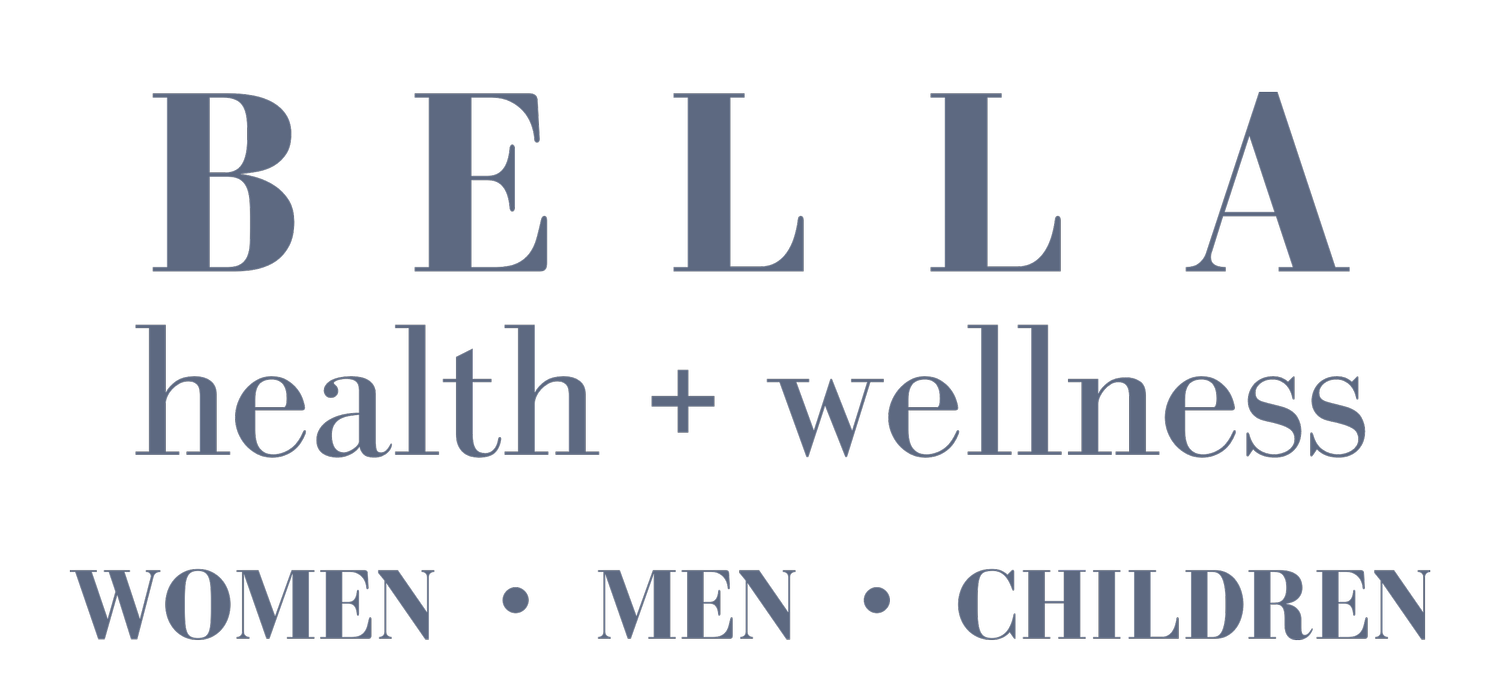Pregnancy Info
WHAT TO EXPECT WHEN YOU’RE EXPECTING






We are so excited to journey with you during this special time.
Congratulations on your pregnancy!
You’ve started out well, seeking out the finest prenatal care in the Denver Metro area.
We are committed to leveraging our entire team of medical experts in the care of you and your baby. We are staffed by surgeons, midwives, nurse practitioners, and registered nurses who will care for you throughout your pregnancy. We even offer in-house sonography (ultra high-tech ultrasound), so that you get to see your little one throughout development in utero.
Our campus environment feels more like home than hospital. As our patient, you will be treated to cloth over paper, robe over hospital gown, and soft lights and gentle music instead of harsh LEDs and sterile smells.
Bella Health + Wellness is committed to promoting healthy living while affirming the dignity of women and of life. As a life-affirming provider, we do not perform or refer for abortions. All tests that we offer are intended to promote healthy pregnancy outcomes for the mind, body, and soul of the woman and baby.
General FAQs
Care in the office
Typically, a pregnancy lasts 40 weeks. The pregnant woman without complications will generally see her obstetrician every month through week 28, then every two weeks from weeks 28 to 36. Finally, you will be seen every week from weeks 36 to 40.
Care in the hospital
Although our primary delivery hospital is Swedish Medical Center- a HealthOne facility in Englewood, Colorado, we also have privileges at Centura’s Littleton Adventist Hospital in Littleton.
While we do believe in the safety the hospital setting affords deliveries, we also understand women’s desires for beautiful, peaceful births. Both Swedish and Littleton have invested in creating natural birth experiences, with modern features like immersive tubs, labor balls, soft lights, and larger rooms available to patients.
Natural vs. Medicated Delivery
Here’s the thing - why should anyone but you decide what’s best for you and your baby? We celebrate women who hope to labor and delivery naturally, free of medications (other than perhaps IV fluid for hydration). We also applaud women who know pain-relieving medications will allow them a more peaceful birth. Among the mothers of our delivering provider team, we have beautiful examples of both. This is about you and what you imagine for this special moment.
Emergencies and Serious Concerns During + After Hours
Our office is open from 9-5 Monday through Friday, closed for lunch from 12:30-1:30. Our patient representative staff will assist you with any pressing concerns during those hours.
After hours, if serious, non-emergent concerns develop, please call 303.789.4968 to speak with our late-night / weekend team. Telemed visits are available (and likely unless in labor), as well as quick consults for needs that cannot wait until the next business day.
Medication requests are not urgent concerns. Please submit requests when the office opens.
If you have an emergency, you should head straight to the ER for immediate evaluation. The hospital team will alert us of your arrival and need for additional evaluation, if appropriate, by our team.
You are the expert of your body and your baby, and we feel honored to partner with you on your pregnancy journey. Please call the after-hours line at Bella if your are experiencing any the following concerning symptoms in pregnancy.
Sharp or persistent abdominal pain or cramps
Persistent headaches
Extreme nausea and vomiting, or vomiting after the fifth month of pregnancy
Blurred vision
Unusual swelling of hands, feet, or face
Sudden weight gain (a gain of 1 lb per day over 3+ days in the 7th to 9th month)
Loss of fluid from the vagina
Infection, fever, chills or flu like symptoms
Fainting
Pain or difficulty with urination
Hard or regular contractions prior to 36 weeks
Any concerns about fetal movement
Any vaginal bleeding. Heavy bleeding, head to the ER. Additional information on bleeding in the paragraphs below.
Bleeding
Twenty-five percent of all pregnant women have bleeding problems during the first three months of pregnancy. Many things can cause this, and it may be harmless, but it may also signal a miscarriage. Bleeding during the later months is unusual and serious. If you have ANY bleeding, call for assistance. If possible, save any clots so that they may be examined.
A Healthy Beginning
We are very concerned about the best possible start for your baby. Here are a few necessary and important ways you can take charge of your health and contribute to your baby’s good health as well.
Take a quality prenatal vitamin with folic acid daily
Abstain from ANY tobacco use, and also avoid second-hand smoke.
Abstain from consuming alcoholic beverages, marijuana or drugs.
Do not use over-the-counter medications without contacting us.
Do not change kitty litter.
Limit your use of caffeine to two servings or less per day.
Avoid saunas and whirlpool hot tubs.
Avoid undercooked meat, and try to eat as much healthy fresh food as possible.
Wear your seatbelt at all times.
Morning Sickness
Nausea and vomiting usually begins by about five to six weeks of pregnancy, worst around nine weeks, and usually improve by 16 to 18 weeks. There are a few women who experience morning sickness until the third trimester or all even until delivery. Although nausea and vomiting is often called "morning sickness," you may feel sick at any time of day and many women (80 percent) feel sick throughout the day. The goal with morning sickness is to avoid large amount of weight loss and help with symptoms. Minor diet changes and avoiding triggers can be sufficient for most women, but if you are concerned please talk to one of our providers for more options!
Baby Movement
Most women begin to notice their baby moving around 20 weeks. At about 24 weeks a baby will begin to have more regular and consistent movements. By 26 weeks a woman should be able to do “Kick Counts.” Baby movement gives insight into life on the inside. A baby should move 5-10 times in 1-2 hours. If your baby is not moving this much or if it is moving less than normal for you this may indicate something is going on. Please call if you are ever concerned about how much the baby is moving or if your baby is not moving. Check out: https://www.countthekicks.org/how-to-count-kicks/ for more on this.
Medications
Do not use any over-the-counter medications during your pregnancy without first consulting with our staff. The following is a list of commonly needed over-the-counter medications which have been proven to be safe to use at any time during your pregnancy:
Tylenol (Acetaminophen) 325-650mg every 4 hours, or 1000 every 6 hours, for fever, pain or headache
Sudafed (Pseudoephedrine) 30-60mg every 6 hours for nasal congestion (Do not take if you have high blood pressure)
Robitussin (Guaifenesin Syrup) 2-4 teaspoons per package directions for cough
Robitussin DM (Guaifenesin and Dextromethorphan Hydrobromide) 2 teaspoons every 4 hours for cough and as an expectorant to loosen phlegm, making cough more productive
Tums, Maalox, Mylanta or Gaviscon per package directions for indigestion or heartburn
Be aware that Tylenol, Sudafed and Robitussin come in combination formulas, such as Tylenol PM, Sudafed Cough and Cold, Robitussin CF, etc. and some of these are not safe to use unless their other ingredients have been approved by our staff. Always read the “active ingredients” on the medication and do not use unless they are specified in the list above.
Emotions
In our aim to provide complete care for our patients, we recognize the importance of the emotions you may experience during pregnancy. It is not uncommon for you and your family to experience additional tension and stress during this time. Pregnancy and/or birth of a baby can strain relationships with loved ones, create budget problems, hamper careers, or force changes in identity and body image. Please remember, we are here to help. Feel free to discuss these problems with us any time. We can also make arrangements for you to visit with a counselor to help you and your family adjust to the many changes pregnancy may create in your life.
Exercise
Exercising during your pregnancy is not only safe but also important. Exercise helps to keep a balance between the fuel your body gets and the use of that fuel, to avoid problems associated with gestational diabetes and other disorders.
However, it is necessary to follow some general guidelines for a healthy workout. Please check with our staff before starting an exercise program.
Drink fluids before and during exercise – even in winter.
Follow a slow warm-up routine for at least 15 minutes before starting.
Follow a mild stretching routine before exercise (But not to your limit).
Remember, your ligaments are looser now and can be more easily injured.
Avoid exercises with jerky or bouncing motions.
Be sure your exercise area is clear (avoid rugs that may slide), adequate in size, and has a stable floor.
Exercise regularly (3 or 4 days a week) not just once in a while.
This is not the time to be competitive! Exercise at your own pace and comfort level.
Do not exercise during hot, humid weather or if you have a fever.
After the fourth month, do not exercise lying down on your back.
Do not take part in any exercise including lifting weights where you hold your breath and strain. Lifting weights is good, just remember to breathe!
Adjust caloric intake to your level of activity. But remember, during pregnancy, calorie levels need to be over and above your usual amount.
Avoid strenuous exercise at higher levels of altitude than you are accustomed to.
Monitor your activity so your pulse does not exceed 140 beats per minute.
Travel
Many women travel during pregnancy and is safe for most women. If you are planning to travel during your pregnancy, let’s chat! Please let us know when and where you will be traveling and how long you will be staying. The best time to travel is between weeks 14-26 as most common emergencies usually happen in the first and third trimester. If you are planning a trip out of the country, discuss this with our staff and check with the CDC for particular precautions (https://wwwnc.cdc.gov/travel/page/pregnant-travelers). For flights, or cruises, find out whether your airline or cruise-line have any travel restrictions during pregnancy. When traveling drink plenty of water and walk every hour! This can reduce the risk of developing blood clots in the legs.
Breast vs. Bottle Feeding
Breastfeeding has been proven to be the best choice for both the mother and the child’s health and well-being. As a new mother, you know that proper nutrition is vital to your baby’s proper growth and development. By breastfeeding, you will be joining billions of women throughout the history of the world who find it simply ideal.
It is an amazing thing to be a woman, especially a new mother whose body is producing food for her growing child. Along with the perfect combination of nutrients, nature has provided breastmilk as an excellent source of antibodies which will protect your child from illness. It is perfectly matched for your baby’s needs. It is convenient, and free! Also, the contact made by the act of breastfeeding will contribute to your infant’s emotional well-being. As long as you choose to breastfeed, your body will benefit as well. It has been shown to reduce the incidence of breast cancer and will help your body resume your pro-pregnancy weight.
